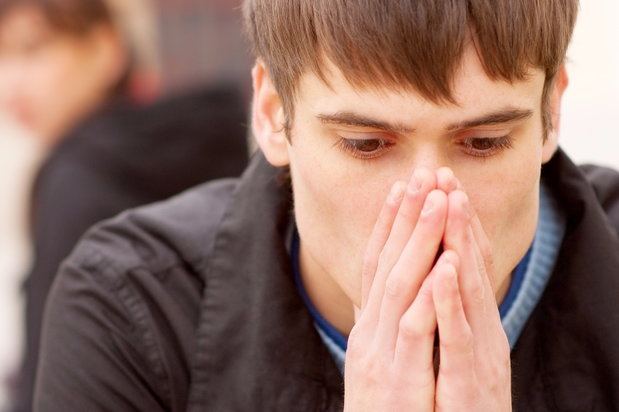Stress is a natural physical and mental reaction to both positive and negative experiences in life. Our bodies are built to respond to stress by releasing hormones and increasing our heart and breathing rates. In the short-term, this can be helpful to defend ourselves from harm and cope with tough situations. It’s when stress becomes extreme that it can take a severe emotional toll on us.
For the active addict, everyday life has become a stressor. In recovery, many things such as memories of using or of being in danger are stressors. Attending meetings, working a program, fighting temptation, moving, and making new friends are additional factors that can make you feel stressed out.
Physical and Mental Symptoms of Stress
There are many reasons as to why chronic stress is dangerous to our health. For one, our body begins producing excess glucose which can put us at risk for type 2 diabetes. The heart also works harder which increases the risk of stroke and heart attack. Sleep deprivation and changes in our eating habits cause headaches and stomach disorders and, ultimately, our immune system is compromised. Under stress, we are more likely to get sick and take longer to recover.
Stress also impairs many facets of our brain function as well as emotional status. Under its influence, we are unable to think clearly, we become forgetful, and depression begins to cloud our outlook on life.
Coping Techniques
There are many, many ways to manage stress. However, what works for one person may not help another person. Sometimes, we may try a coping strategy and find that it isn’t helping us at all, but actually causing us more stress. This is true for many people who try to meditate. In my case, meditation slows me down long enough to think of all the negative possibilities I hadn’t gotten to yet. For others, it is a peaceful break from the chaos in their life.
The key is not to stop at just one technique. Finding several that you like and can use in different situations is very useful. For example, you may utilize one technique for bedtime, another during moments when you are running behind, and another when facing an angry boss, parent, or teacher. It’s a good idea to fill up the toolbox for whatever occasion arises.
If you need some ideas of what you can do when you need to de-escalate, just try these techniques to see what stick.
1. Remove yourself.
One of the most effective ways to immediately reduce stress is to remove yourself from the situation, even if it is only for a few minutes. This often is enough time to gain a new perspective or help you feel less overwhelmed.
2. Exercise.
Not many of us are fond of exercise, but research is showing again and again how beneficial it is to our mind and body. It doesn’t have to be long—as long as it is a regular activity. For instance, a 20-minute walk 4 days a week can dramatically decrease your overall stress level. Any type of physical activity you do in the middle of a stressful time can give immediate relief that will last for several hours.
3. Unplug.
Technology is everywhere. Most of us hold it in our hands all day long. If it isn’t our smartphone, it’s the tablet, laptop, or Netflix—whatever your choice of media is. We have become so accustomed to answering every text as soon as we get it and checking our email the second it comes in. These impulses are yet another distraction and potentially stressful incident. Social media and playing games can be fun, but too much of a good thing is not good at all. Electronics are becoming an addiction. To de-stress you have to slow down and find a quiet space—a space without an electronic device.
4. Sleep tight.
Getting a good night’s sleep is essential to our health. During the night, our bodies repair themselves and prepare us for the next day. If we play on our phone or toss and turn all night, our level of melatonin (which is necessary for sleep) drops. This drop makes it more difficult to sleep and our stress hormones stay elevated throughout the night.
5. Look on the bright side.
Many times we can reduce our stress level by altering our perspective on any given situation. Being positive is not easy when we are feeling stressed out or overwhelmed, but it does change our outlook. When facing an obstacle, use it as a learning experience. Look at it from all angles and frame it in a positive way. For example, I had an addiction to opiates. The experience itself may not have been good, but the knowledge and tools I took from it are positive. Through my journey, I have learned sound coping strategies that I can apply in many areas of my life and beyond.
There are many more techniques available to help reduce stress. The key is finding the ones that work best for you. Try out the techniques that seem the most likely to calm your mood and then practice them on a daily. Remember, variety is good so mix and match your coping strategies if you can. Taking time to reduce your stress level is a worthy endeavor that will ultimately lead you in the direction of a happy and healthy life.
If you or someone you know is seeking help from addiction, please visit our directory of treatment centers or call 800-772-8219 to talk to a treatment specialist.







